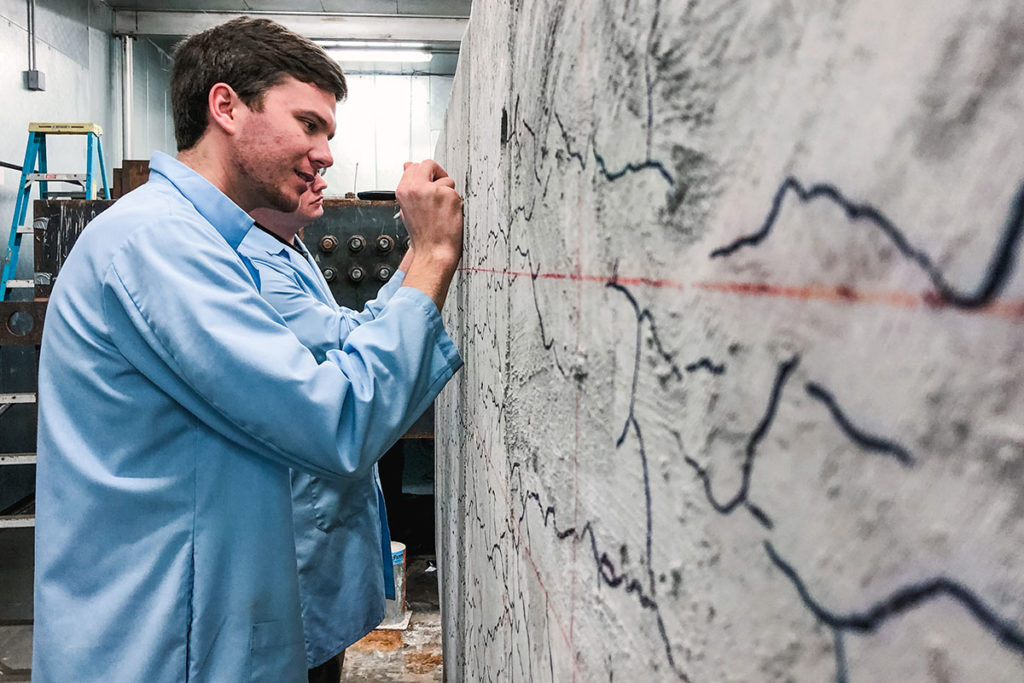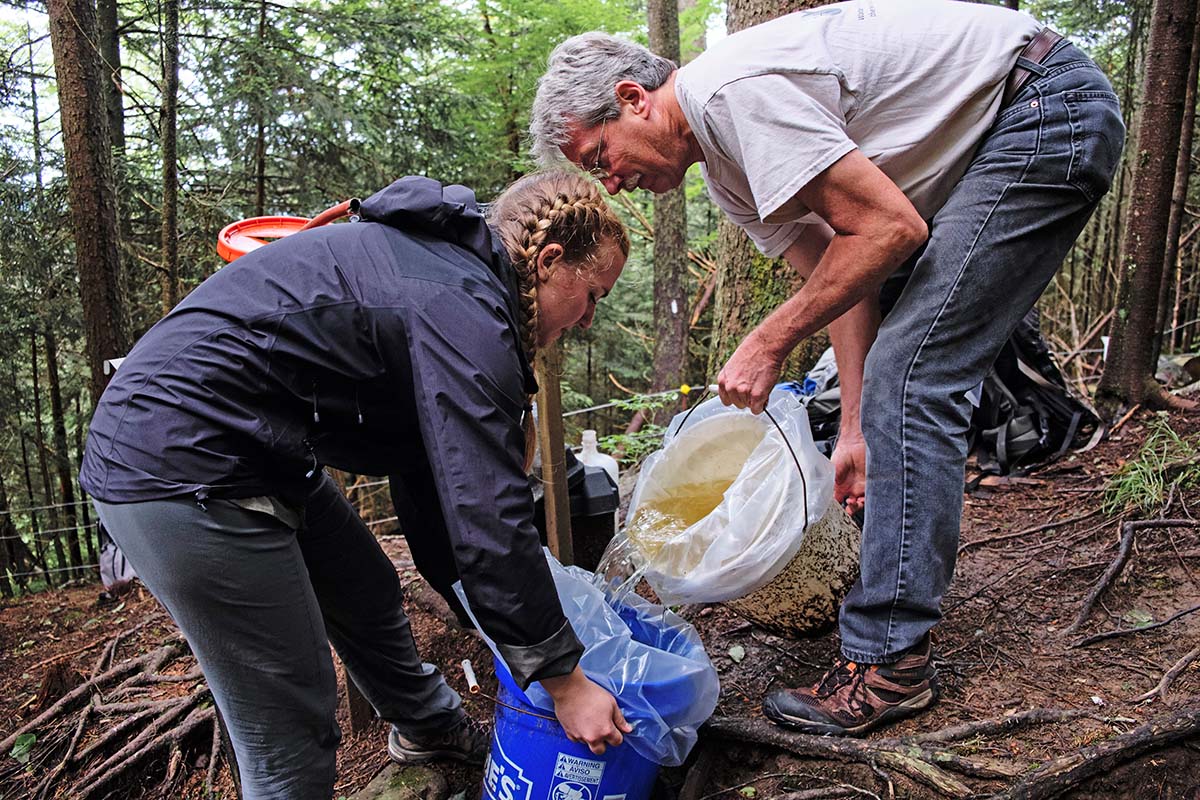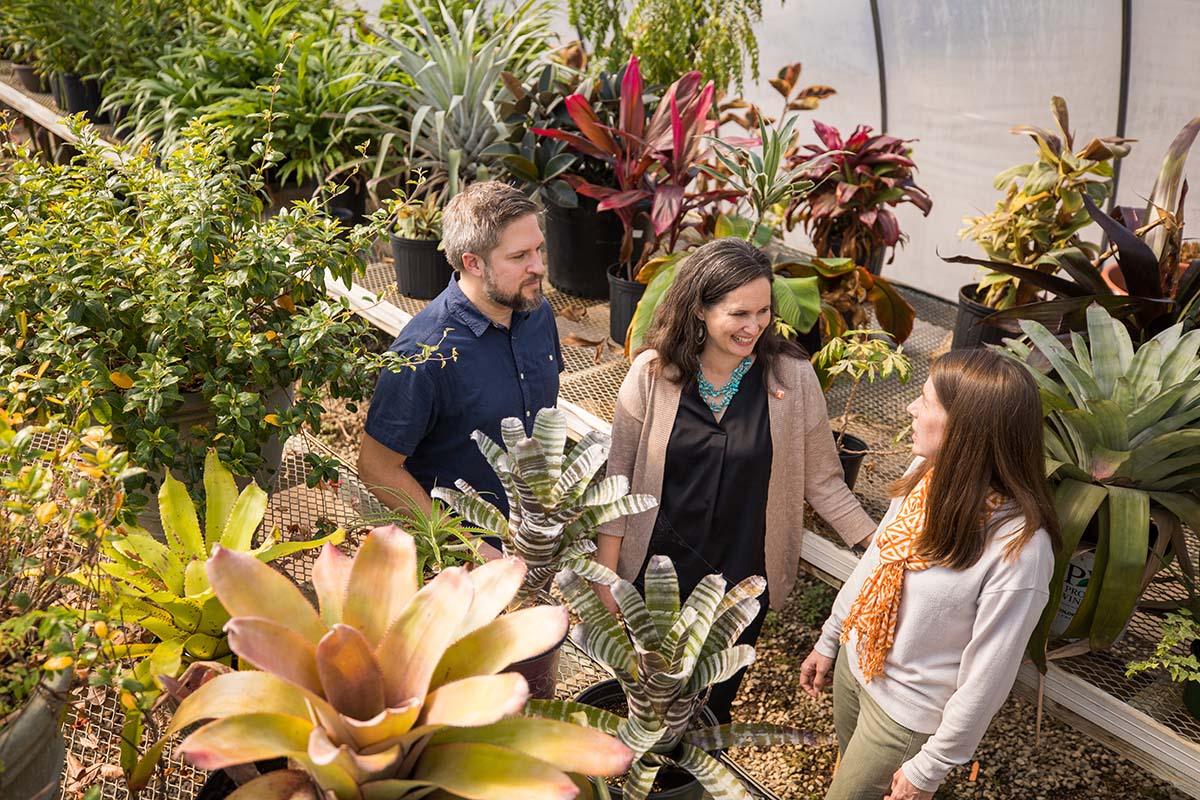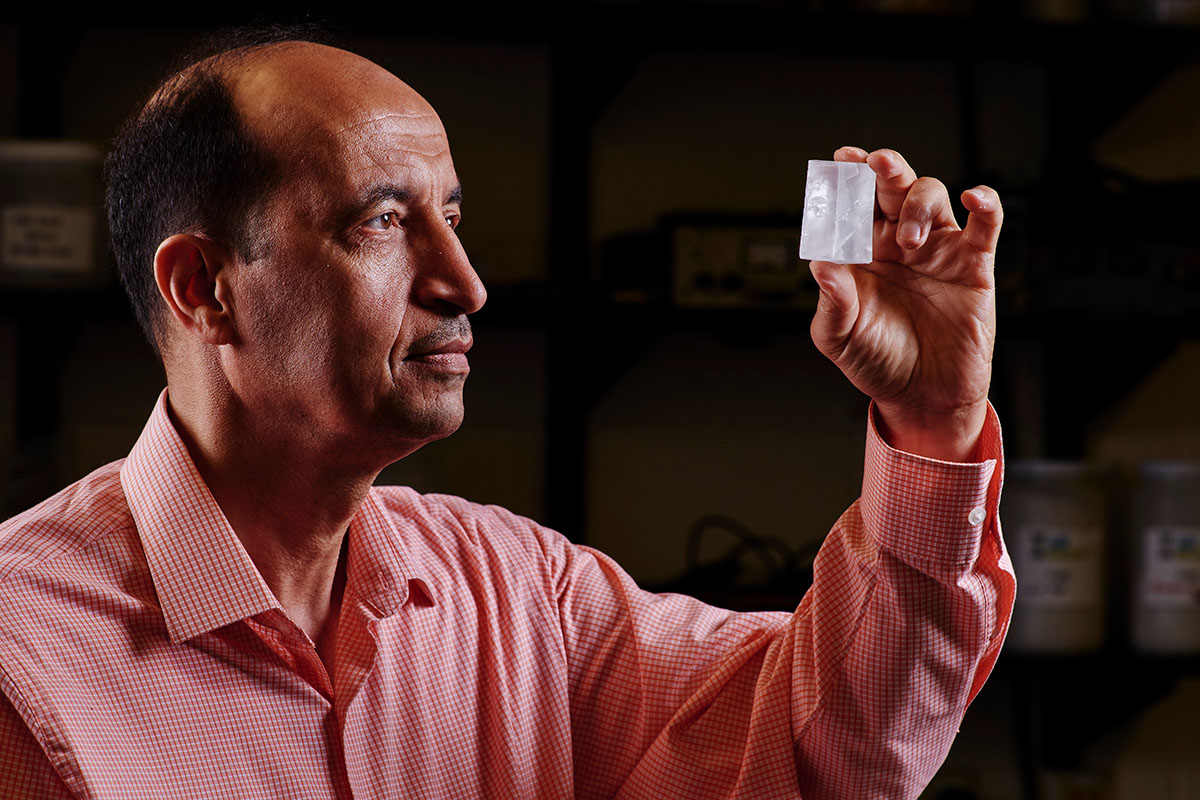Research Sails Ahead to a Brave New Future
If it wasn’t clear before the pandemic that our faculty have a deep humanitarian drive, the COVID-19 outbreak put that fact into sharper focus. The research currently underway is a part of building human and environmental resilience in the years to come.
According to Academic Analytics, our faculty ranks in the top 20 in publications per faculty member and in the top 30 in citations per faculty member among all US institutions. We highlight here a sampling of these faculty and their high-impact research, which continues to attract some of the best and brightest students from around the world who desire to make an impact across our four main research thrusts.
- Professor John Schwartz works with a student to collect water samples from Great Smoky Mountains National Park to test for pollutants.
- Professor Jon Hathaway collaborates with former UT College of Social Work Assistant Professor Lisa Reyes Mason and College of Arts and Sciences Associate Professor of Geography Kelsey Ellis.
- Khalid Alshibli
Advanced Infrastructure Materials
Fred N. Peebles Professor Dayakar Penumadu’s collaboration with IACMI—The Composites Institute is seeking to develop carbon fiber composite material solutions for new and existing civil engineering infrastructures. Much of our infrastructure is made of concrete, and Professor John Ma’s work in this area has led to one of his students, Debalina Ghosh, developing a promising new formula for a greener, faster-drying concrete that emits 62 percent less carbon than the industry standard.
With an eye for the next generation, Associate Professor Tim Truster, an NSF Early CAREER Award recipient, is developing multiscale models to understand how microstructure of metals contributes to fatigue failure. The next generation also needs protection from the aging nuclear stockpile, which is where Professor Khalid Alshibli’s research is directed. He joined 15 researchers in an alliance of universities and a $16.5 million research center funded by the US Department of Energy’s National Nuclear Security Administration to support the stockpile stewardship program.
Smart Building Systems
Assistant Professor Nicholas Wierschem was one of the college’s three NSF Early CAREER Award recipients in 2020. His award will help buildings stay safe in earthquakes with a device that sends the vibration into a rotational flywheel. Professor Qiang He and Assistant Professor Shuai Li are also focused on building safety, but with regard to buildings designed to limit the spread of infectious diseases.
Meanwhile, Assistant Professor Nick Zhou is investigating a number of nature-inspired material innovations to enhance the energy performance characteristics of building envelopes.
Environment (Water and Climate)
John D. Tickle Professor Joshua Fu’s work encompasses air pollution issues spanning from global nitrogen deposition to organic emissions from wildfires and includes impacts on public health, climate, agriculture production, and abatement strategies.
Associate Professor Jon Hathaway, an NSF Early CAREER Award recipient, continues his research on smart stormwater systems for climate resilience to help communities sense changes in weather, flows, and water quality and adapt stormwater system operation using active controls such as gates, valves, and pumps.
Professor John S. Schwartz, director of the Tennessee Water Resources Research Center at UT’s Institute for a Secure and Sustainable Environment, is leading a multidecade study of atmospheric deposition and cycling of nutrients in the Great Smoky Mountains National Park.
UT–ORNL Governor’s Chair for Environmental Biotechnology Terry Hazen received the Environmental Research award from the American Society of Microbiology for his distinguished achievements. Most recently, he helped the entire UT community by devising a wastewater treatment testing program to detect the presence of the COVID-19 virus in buildings on campus. A positive hit would trigger a saliva test protocol devised by UT–ORNL Governor’s Chair for Microbiology and Civil and Environmental Engineering Frank Loeffler.
Transportation Infrastructure and Systems
Edwin G. Burdette Professor Baoshan Huang, among the world’s top 10 cited researchers in pavement materials, continues to research sustainability and new formulas for pavement that will take us into the second half of the century and beyond.
Research Professor David Greene, a senior fellow of UT’s Howard H. Baker Jr. Center for Public Policy, continues to forge policy research that outlines the road ahead to decarbonization of the transportation sector. But some roads lead to alternate transportation, which is gaining traction. This area is led by Assistant Professor Candace Brakewood and Professor Chris Cherry, who will be guiding UT’s partnership with a consortium led by Georgia Tech to address declining transit ridership and address critical transportation challenges facing the nation.
Transportation automation points to the not-so-distant future of automobiles. A new collaborative research project led by Beaman Professor Asad Khattak focuses on enhancing driver safety through experiments that identify and detect driver impairment. Professor Lee Han innovates by using crowdsourced traffic data to help the Tennessee Department of Transportation save taxpayer money while providing accurate real-time roadway information.



